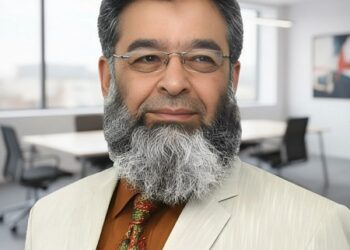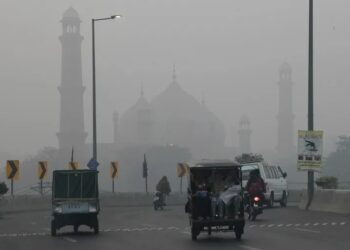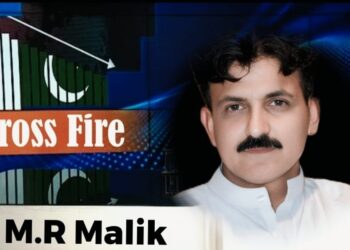Written by: Abdul Basit Alvi
In today’s interconnected world, public engagement and entertainment events play a vital role in strengthening community bonds, raising awareness about social issues, and offering moments of enjoyment. While these events are often seen as distinct—one focused on community involvement and the other on leisure—they share a common purpose: enriching lives, fostering dialogue, and uniting diverse groups. From community picnics to major festivals and thought-provoking discussions, such events bridge gaps and inspire a greater sense of belonging and civic responsibility.
Public engagement involves activities that encourage individuals to participate in decision-making processes, discussions, or actions that impact their community, society, or environment. These events provide a platform for citizens to engage with policymakers, local authorities, or non-profit organizations, voice concerns, share ideas, and drive change. Examples include town hall meetings, workshops on topics like education or sustainability, volunteering opportunities, and public forums on crucial issues like climate change or economic development.
On the other hand, entertainment events are primarily designed for enjoyment, centered around artistic and cultural expression. They celebrate talent, creativity, and shared experiences, with examples such as concerts, theater productions, film festivals, and sports events. While their main focus is leisure, many entertainment events also foster dialogue, raise awareness, or support important causes.
Both types of events contribute to a community’s sense of belonging. Whether through active participation in a town meeting or enjoying a local festival, people forge lasting memories and strengthen social ties. Public engagement events often focus on civic participation, empowering individuals to take part in governance and social change. Entertainment events, while primarily for fun, can serve as platforms for advocacy, shedding light on issues such as environmental protection or social justice. By highlighting critical topics, both public engagement and entertainment events encourage people to connect across various divides and become more informed, active citizens committed to positive change. Entertainment and public engagement events can provide significant economic advantages to the host city or community. Festivals, concerts, and sporting events, for example, can draw tourists, boosting demand for local accommodations, dining, and retail. Additionally, these activities can encourage investment in local infrastructure and services, fostering the growth of small businesses and social enterprises. By highlighting a community’s unique culture, art, and values, such events play a key role in enhancing its economic vitality. The primary benefit of public engagement and entertainment events is the opportunity they provide for people to come together. In a time when digital interactions and social fragmentation are on the rise, in-person engagement is vital for emotional well-being. Whether it’s enjoying a concert with friends or feeling heard at a community forum, such events help reduce social isolation, foster a shared sense of purpose, and strengthen connections within communities. Entertainment events, in particular, are crucial for preserving and celebrating both local and global cultures. From traditional festivals showcasing indigenous practices to modern art performances that explore innovative forms, these events offer spaces for cultural exchange and dialogue. They enable attendees to gain deeper insights into diverse ways of life, fostering empathy and understanding.
Public engagement events, such as workshops, town halls, and petitions, empower individuals to participate in the democratic process. These events ensure that community voices are heard and that policies and initiatives align with the public’s needs. A well-executed engagement event can inspire advocacy, uniting people around common causes and encouraging collective action. Similarly, successful entertainment events are significant drivers of local economic activity, generating income from ticket sales, merchandise, tourism, and food sales. These events also have lasting positive effects by raising the profile of the host community, attracting investment, and fostering a sense of pride and identity that persists well beyond the event itself.
Organizing large-scale public events requires meticulous planning, including selecting appropriate venues, managing crowd control, coordinating sound systems, and ensuring security. Certain events, like public forums or town hall meetings, demand extensive outreach and coordination to ensure diverse and representative participation. One of the biggest challenges is ensuring that these events are inclusive and accessible to all. Organizers must address factors such as physical accessibility (e.g., ramps and seating), language barriers (e.g., translation services), and financial accessibility (e.g., affordable or free tickets). Ensuring that everyone feels welcome and able to participate is essential to the success of these events.
Securing funding and sponsorships can be a challenge, especially for public or non-profit events. Organizers often have to balance financial pressures with maintaining the integrity of the event’s mission, whether they’re seeking grants for a community event or negotiating sponsorships for a concert. As communities expand and event formats evolve, organizers must also consider the environmental impact of gatherings. From waste management to carbon footprints, sustainability is becoming a key focus for both public engagement and entertainment events. Promoting eco-friendly practices and raising awareness about sustainability can help minimize the negative impact.
Before planning an event, it’s important to clearly define its purpose. Whether the goal is to entertain, inform, or inspire action, understanding the event’s objectives ensures it stays on track to achieve its desired outcomes. Design events that cater to the needs and interests of the target audience, taking into account their preferences, accessibility needs, and how best to engage them. Foster inclusivity by ensuring diverse representation in the event lineup, whether it’s through artists, speakers, or topics, and by considering accessibility in terms of language, venue, and cost. Collaborating with local organizations, businesses, and community leaders helps ensure the event reflects the community’s values and addresses its needs. Collaborative efforts typically lead to more successful and well-received events. Utilize various channels—such as social media, local newspapers, and word-of-mouth—to promote the event. A strong marketing strategy helps ensure widespread participation and awareness. Adopt environmentally-friendly practices, such as recycling, sustainable sourcing of materials, and reducing waste, to make the event more eco-conscious.
Public engagement and entertainment events hosted by the military serve as crucial connections between military institutions and the civilian population. These events are designed to build a sense of community, foster transparency, and strengthen the relationship between military personnel and the public. Beyond the social and emotional bonds, these events offer several advantages for both the general public and the military.
One of the key outcomes of these events is the enhancement of civil-military relations. By organizing community-focused events, the military helps demystify its role and operations, which are often viewed as distant or formal. This openness fosters greater understanding, trust, and mutual respect between the military and civilians. Army-hosted public events frequently feature displays of military strength, such as air shows, parades, or skill demonstrations. These spectacles not only cultivate national pride but also inspire patriotism, reminding the public of the sacrifices made to ensure national security.
For military personnel, participating in these events boosts morale as they experience the public’s appreciation and respect. Many of these events also include educational elements, providing valuable insights into the military’s history, technology, and humanitarian efforts. For example, exhibitions might showcase military equipment, explain its functions, and demonstrate its role in both combat and peacekeeping. These events also offer opportunities for the public to interact with soldiers, ask questions, and gain a deeper understanding of the defense sector. Schools and educational groups are often invited, helping younger generations better understand the army’s role in their country.
The army’s involvement in public events often extends beyond entertainment, serving charitable purposes such as fundraising, blood donation drives, or support for veterans. These initiatives allow the military to play an active role in supporting the local community. For instance, a charity concert or sporting event organized by the military might raise funds for veterans’ healthcare, military families in need, or disaster relief efforts. This outreach not only assists those in need but also enhances the military’s image as a benevolent force dedicated to serving the nation.
Army events offer a unique chance for the public to interact with military personnel in a non-combat setting. Whether through meet-and-greets, volunteering in community activities, or participating in friendly sports competitions, these events help humanize soldiers, showing them as individuals with lives beyond their duties. This can help break down stereotypes of soldiers as distant or unapproachable, creating a more compassionate and relatable image of the military.
Public engagement events can also be an effective recruitment tool. By highlighting the diverse roles within the military, from combat soldiers to technical experts, medical professionals, and support staff, these events help individuals recognize the range of career opportunities available. Many young people attending a military-hosted event may leave with a newfound interest in joining the armed forces.
Additionally, demonstrations of the army’s technological advancements, leadership opportunities, and global humanitarian missions can inspire individuals to view military service as a rewarding and meaningful career path. These events also provide an opportunity to educate civilians about the importance of national security and the military’s role in protecting the nation. Through interactive sessions, simulations, or lectures, the army can effectively explain the importance of defense spending, national security policies, and international cooperation for the country’s well-being. This approach boosts national security awareness among the public, helping citizens understand their role in supporting the military’s mission, from basic security measures to policy decisions. Public engagement events also play a vital role in fostering a resilient society by emphasizing the value of cooperation and solidarity in overcoming challenges. Whether through team-building exercises, joint community service projects, or crisis response simulations, these events encourage collaboration between citizens and the military. In times of national crises, such as natural disasters or security threats, these connections become invaluable in fostering unity and a shared sense of responsibility. On a more basic level, military-organized entertainment events offer stress relief and recreation for both civilians and military personnel. These occasions provide a chance for people to relax and enjoy themselves in a supportive environment. Concerts, sports tournaments, and festivals bring the public together for shared experiences, while offering military personnel a break from their demanding duties. In a society marked by high levels of stress and anxiety, these events offer moments of joy and connection, contributing to the well-being of all involved.
In today’s globalized world, the army’s public engagement activities also serve as a platform for cultural exchange. Many military events feature international participation or showcase global peacekeeping and humanitarian missions. These exchanges expose civilians to diverse cultures and perspectives, as soldiers often come from various regions and backgrounds. Such interactions promote unity in diversity and foster international cooperation and understanding.
The Pakistan Army is renowned not only for its defense and security roles but also for its substantial contributions to public engagement and entertainment. Over the years, the army has organized numerous events that strengthen national unity, celebrate cultural heritage, and provide entertainment to the public. These events aim to enhance the bond between the military and civilians, highlight the army’s more relatable side, and contribute to society’s overall well-being.
One of the Pakistan Army’s most notable events is the Pakistan Day Parade, held annually on March 23rd to commemorate the Lahore Resolution of 1940. This grand spectacle showcases national pride and military strength, with soldiers from various regiments marching in perfect formation, exemplifying discipline and unity. The Pakistan Air Force contributes with thrilling flypasts and aerobatic displays. Folk dances, music, and traditional performances from all provinces celebrate Pakistan’s cultural diversity, while military equipment such as tanks and missiles are exhibited to highlight the country’s defense capabilities. The parade is attended by thousands, including government officials, foreign dignitaries, and the public, and is broadcast live, reaching millions of viewers.
The Pakistan Army, through its welfare organization, the Army Welfare Trust (AWT), organizes festivals and fairs nationwide to promote local businesses, entertain the public, and support charitable causes. Events like the Lahore Eat Festival, which features a variety of cuisines, live music, and cultural performances, draw food lovers from across the country. The Karachi Literature Festival, in collaboration with literary organizations, celebrates literature, poetry, and intellectual discussion. The Peshawar Cultural Festival, showcasing Pashtun culture through traditional dances, music, and handicrafts, is another vibrant example. These festivals provide entertainment, stimulate local economies, and foster cultural exchange.
The Pakistan Army also has a rich history of promoting sports and physical fitness. It organizes numerous sports events and tournaments to encourage youth participation and nurture talent. The Inter-Services Sports Tournaments, held annually, feature athletes from the army, navy, and air force in sports such as athletics, boxing, wrestling, and shooting. The Army Marathon, a popular event in major cities, attracts both professional athletes and amateur runners, promoting fitness and healthy living. The army frequently partners with the Pakistan Sports Board to organize national-level competitions, offering athletes a platform to showcase their skills. These events not only encourage sportsmanship but also serve as a platform for discovering and developing future champions. The Pakistan Army has organized a variety of musical concerts and cultural performances to entertain the public and celebrate the nation’s heritage. These events often feature well-known artists and performers. Jashn-e-Baharan, a spring festival held in Islamabad, includes live music, dance performances, and flower exhibitions. Lok Mela, a folk festival organized in partnership with the National Institute of Folk and Traditional Heritage, highlights traditional crafts, music, and dances from across Pakistan. Additionally, the Pakistan Army Band frequently performs at public events, playing patriotic songs and popular tunes. These events offer a platform for artists to showcase their talents and provide the public with high-quality entertainment. In times of crisis, the Pakistan Army plays a crucial role in relief and rehabilitation efforts, often incorporating public engagement activities to lift the spirits of affected communities. After the 2005 Kashmir earthquake, the army set up relief camps offering medical care, food, and shelter, while also organizing entertainment programs to boost morale. During the 2010 floods, the army established relief camps and arranged community events to support displaced families emotionally. During the pandemic, the army distributed food and medical supplies, alongside small-scale entertainment events to help alleviate loneliness and stress. These efforts underscore the army’s commitment to the nation’s well-being.
The Pakistan Army also regularly organizes events to educate the public and raise awareness about important issues, often blending entertainment elements to engage audiences. Free medical camps in rural areas are paired with awareness sessions on hygiene and nutrition, and entertainment activities like puppet shows and skits effectively convey key messages. Tree planting campaigns and clean-up drives are often complemented by music and cultural performances to attract participants. In partnership with NGOs, the army hosts seminars and workshops on topics like the dangers of drug abuse, often including motivational speeches and entertainment programs.
The National Defense University (NDU), under the Pakistan Army, organizes events that promote intellectual discourse and cultural exchange. Experts from around the world are invited to discuss global security challenges and geopolitical issues, while Cultural Nights allow students from different countries to showcase their traditions through music, dance, and food. Debate competitions are also held, encouraging critical thinking and public speaking among students.
The Pakistan Army frequently hosts “open houses” and “family days” at military bases across the country, providing civilians with the opportunity to interact with soldiers, learn about military life, and participate in various activities. Visitors can observe demonstrations of military equipment and tactics, while families enjoy funfair rides, games, and food stalls. Displays of traditional crafts, clothing, and artifacts from across Pakistan also add to the experience.
On August 14th, the Pakistan Army plays a central role in organizing Independence Day celebrations, including flag hoisting ceremonies at military installations and public spaces, attended by thousands. Spectacular fireworks light up the skies in major cities, and cultural programs featuring patriotic songs, dances, and skits celebrate the nation’s history and achievements. The Pakistan Army also collaborates with civil society organizations to organize events that benefit the community. Blood donation drives, in partnership with hospitals and NGOs, are often accompanied by entertainment programs to encourage donations. Charity runs are organized to support causes like education for underprivileged children, and local artists are supported through exhibitions and auctions, with proceeds going to charitable causes. These events attract large crowds of eager attendees.
A recent example of such an event was the three-day Kashmir Cultural Festival and Painting Competition held in Muzaffarabad, AJK, organized by the Pakistan Army in collaboration with the District Administration of Muzaffarabad AJK. Senior Army and civilian officers, along with a large number of local residents from Muzaffarabad, attended the event. During their speeches, the speakers, guests, and participants emphasized that, in today’s world, the enemy is attempting to influence the minds of the younger generation by spreading negative propaganda through social media. They urged the youth to use social media in a positive way to promote national interests and the Kashmir freedom movement. At the conclusion of the program, prizes were awarded to the winners in various categories. The three-day festival featured Kashmiri cultural stalls, traditional food, children’s entertainment, and painting competitions. The festival aimed to promote Kashmiri culture and showcase the artistic talents of children. Participants expressed their gratitude to the Pakistan Army for organizing the Kashmir Cultural Festival, calling it a significant step in promoting Kashmiri culture.
The Pakistan Army has hosted a range of events throughout Azad Jammu and Kashmir (AJK), such as the Sports Festival in Neelum Valley, a Sports Gala in Rawalakot, and another in Bagh. Among its notable initiatives is the ISPR Internship program, which focuses on empowering and training the youth, benefiting a significant number of young individuals. These events have provided valuable opportunities to entertain, empower, support, and train the local community, especially the youth. Moreover, the Pakistan Army has been consistently conducting medical camps in remote and underserved areas of Pakistan, including AJK regions like Neelum Valley, Bagh, and Chakothi, providing essential healthcare services to many patients with limited access to other facilities. Additionally, the Army held a Media Workshop in Muzaffarabad, offering a great platform for local media professionals to engage with the senior leadership of the Pakistan Army, gain knowledge, and clear up several misconceptions.
In today’s digital era, the rapid spread of propaganda and fake news can greatly influence public perception and national security. To address these issues, it is crucial to foster strong interactions between the army and civilians. Consistent engagement helps build trust, transparency, and mutual understanding, ensuring that the public stays well-informed and can critically evaluate information. Through public events, educational programs, and open communication, the army can offer accurate information, dispel false narratives, and promote national unity. By strengthening their relationship, the army and civilians can work together to counter misinformation and protect public opinion from manipulation.
The Pakistan Army has played a crucial role in organizing public engagement and entertainment events, demonstrating its dedication to fostering unity, patriotism, and community welfare. Through initiatives like cultural festivals, sports tournaments, and charitable activities, the Army has not only provided entertainment but also strengthened the bond between civilians and the military. By utilizing its organizational expertise, the Army continues to make meaningful contributions to societal well-being, fostering a sense of national pride and solidarity throughout the country. Such initiatives are warmly welcomed by the public, who are calling for more events of this nature to be organized.

























